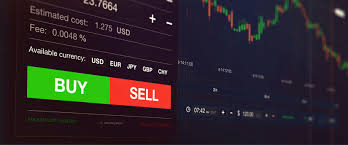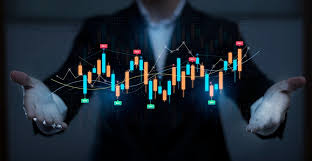Forex Trading Software Development Bridging Technology and Financial Expertise
Posted by: admin in trading16
Forex Trading Software Development: Bridging Technology and Financial Expertise
In the ever-evolving world of financial markets, the role of a forex trading software developer Trading Vietnam has become increasingly crucial. As Forex trading continues to grow in popularity, the need for advanced trading platforms, analytical tools, and automated systems has never been more pronounced. This article delves into the intricate world of Forex trading software development, exploring the key responsibilities, technologies, and trends that define this dynamic field.
The Importance of Forex Trading Software
Forex trading software serves as the backbone of modern trading strategies. These platforms facilitate everything from executing trades to providing real-time market data and analytical tools. With over $6 trillion traded on a daily basis, the Forex market is the largest financial market in the world, and therefore requires sophisticated technology to manage transactions efficiently.
Key Responsibilities of a Forex Trading Software Developer
A Forex trading software developer is responsible for creating and maintaining powerful trading platforms. This involves a variety of tasks, including:

- Designing User Interfaces: A developer must create intuitive and user-friendly interfaces that allow traders to execute trades seamlessly.
- Developing Trading Algorithms: Many traders utilize algorithmic trading strategies. Developers design and implement these algorithms to automate trading processes.
- Integrating APIs: Developers need to work with various third-party APIs, such as market data feeds, payment gateways, and other trading tools.
- Testing and Debugging: Thorough testing is necessary to ensure that the software functions correctly under different market conditions.
- Maintaining Security: Forex trading software handles sensitive financial information, so developers must implement robust security measures to protect user data.
Essential Technologies and Tools
Forex trading software developers utilize a range of programming languages and technologies to build efficient trading platforms. Some of the most common ones include:
- C++: Known for its performance efficiency, C++ is often used for developing high-frequency trading systems.
- Python: With its simplicity and ease of use, Python has gained popularity for backtesting algorithms and data analysis.
- Java: Java’s robust set of libraries and cross-platform capabilities make it ideal for developing complex trading systems.
- JavaScript: With server-side and client-side applications, JavaScript is vital for creating responsive web-based trading platforms.
- SQL: To handle large amounts of data, SQL is essential for database management, enabling the effective storage and retrieval of user data.
Trends Shaping Forex Trading Software Development
The landscape of Forex trading is continually changing, influenced by technological advances and market dynamics. Several key trends are currently shaping the industry:

- Artificial Intelligence (AI): AI is being integrated into trading platforms to analyze market trends and predict price movements. Machine learning algorithms can adapt over time, improving their accuracy and efficiency.
- Blockchain Technology: Blockchain is enhancing transparency and security in Forex trading by providing decentralized solutions for transactions and data management.
- Mobile Trading: As trading on the go becomes more popular, developers are focusing on creating mobile applications that offer full trading functionalities and real-time data access.
- Social Trading: The rise of social trading platforms allows users to share strategies and follow successful traders, driving demand for software that can showcase and analyze user performance metrics.
- Cloud Computing: Cloud-based trading solutions provide scalability, flexibility, and accessibility, enabling traders to access their accounts from any device while safeguarding against data losses.
The Future of Forex Trading Software Development
Looking ahead, forex trading software development will continue to evolve in response to new technologies and market demands. Key areas to watch include:
- Increased Regulation: With rising scrutiny from regulatory bodies, developers will need to ensure compliance in their platforms.
- Enhanced User Experience: Prioritizing user experience will be critical as competition intensifies in the trading software market.
- Focus on Data Analytics: Trading platforms that can provide in-depth analysis and insights will likely see greater adoption as traders seek a competitive edge.
- Sustainability Practices: As environmental concerns grow, development may shift toward creating energy-efficient algorithms and platforms.
Conclusion
The role of a forex trading software developer is more important than ever in crafting innovative solutions that meet the needs of modern traders. As technology continues to shape the Forex market, professionals in this field will play a crucial role in driving efficiency, security, and accessibility. By staying abreast of industry trends and continually honing their skills, developers can ensure they remain a vital part of this exciting and fast-paced industry.


 Entries (RSS)
Entries (RSS)